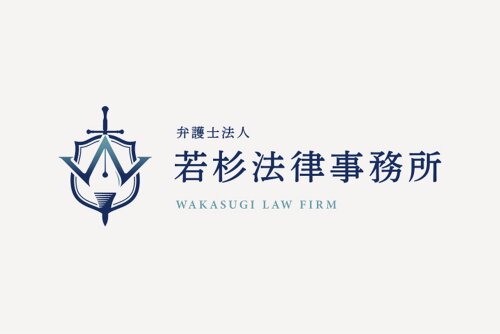Best Job Discrimination Lawyers in Fukuoka
Share your needs with us, get contacted by law firms.
Free. Takes 2 min.
List of the best lawyers in Fukuoka, Japan
About Job Discrimination Law in Fukuoka, Japan
Job discrimination in Fukuoka, Japan refers to unfair treatment in the workplace based on personal characteristics that are not related to job performance or qualifications. These characteristics commonly include gender, age, nationality, disability, and other factors. In Japan, both national and local laws are designed to promote fair and equal employment opportunities. The goal of these laws is to prevent unjust treatment during hiring, pay, promotion, termination, and other employment practices. Fukuoka, as a major city in Japan, follows national standards while also fostering a diverse and inclusive work culture.
Why You May Need a Lawyer
There are several situations where individuals facing job discrimination in Fukuoka may require legal support. Sometimes discriminatory practices are subtle and difficult to identify. Other times, employers may not be aware they are violating the law. Common scenarios where legal advice may be helpful include:
- Being unfairly denied a job or promotion despite being qualified
- Receiving unequal pay compared to colleagues of a different gender or background
- Experiencing harassment or exclusion in the workplace because of race, nationality, or disability
- Facing sudden termination after revealing a pregnancy or medical condition
- Retaliation for complaining about unfair treatment
- Lack of reasonable accommodation for disabilities or caregiving responsibilities
Lawyers can provide guidance on whether you have a case, help gather evidence, explain your rights, and represent you in negotiations or court.
Local Laws Overview
Job discrimination in Fukuoka is primarily governed by Japanese national laws. The most notable are:
- Labor Standards Act: Mandates equal treatment for workers regardless of nationality, creed, or social status.
- Act on Securing, Etc. of Equal Opportunity and Treatment between Men and Women in Employment: Prohibits gender-based discrimination in recruitment, hiring, assignment, and promotion.
- Act on Employment Promotion etc. of Persons with Disabilities: Requires reasonable accommodation for employees with disabilities and prohibits unfair treatment.
- Act on the Improvement of Employment Management for Part-Time Workers and Fixed-Term Workers: Ensures equal pay for equal work, protecting non-regular employees.
Fukuoka does not have separate anti-discrimination laws outside of these national statutes, but the local government actively promotes fair employment practices and may offer additional mediation or support services.
Frequently Asked Questions
What is considered job discrimination in Fukuoka, Japan?
Job discrimination involves unfair treatment based on factors such as gender, age, nationality, disability, or other unrelated criteria, in hiring, salary, promotion, or termination.
Can I file a complaint if I believe I am a victim of job discrimination?
Yes, victims of job discrimination can file complaints with their employer, labor unions, local labor bureaus, or consult with a lawyer for legal action.
What evidence do I need to prove job discrimination?
Helpful evidence includes emails, company policies, records of treatment, witness statements, and proof of unequal pay or denial of opportunities.
Are foreigners protected by these laws in Fukuoka?
Yes, Japanese anti-discrimination laws protect all employees in Fukuoka, regardless of nationality, including foreign nationals.
What is the process for resolving a discrimination dispute?
The process may involve internal company resolution, mediation through a labor bureau, and if necessary, court proceedings with the help of a lawyer.
Is gender discrimination illegal in hiring and promotions?
Yes, Japanese law specifically prohibits gender discrimination in hiring, pay, promotions, and assignments.
What should I do if I experience harassment or retaliation?
Document all incidents, report them to HR or management, and seek legal advice if your situation does not improve or if retaliation occurs.
Can part-time or contract workers seek protection?
Yes, laws in Japan provide protection for part-time and fixed-term workers, ensuring they are not discriminated against compared to full-time employees.
Is it possible to resolve discrimination cases without going to court?
Many cases can be resolved through negotiation, internal procedures, or mediation by the Labor Bureau before reaching the court stage.
Will I lose my job if I complain about discrimination?
It is illegal for employers to retaliate against employees for reporting discrimination, but retaliation can happen. Legal support can help protect your rights.
Additional Resources
If you need more information or support in Fukuoka, consider reaching out to the following resources:
- Fukuoka Labor Bureau (under the Ministry of Health, Labour and Welfare) - Offers counseling and mediation services for workplace issues
- Fukuoka City Office Consultation Services - Provides multilingual support and advice on employment discrimination
- Japan Legal Support Center (Houterasu) - Offers legal consultations and referrals to lawyers
- Labor Unions - Some industry and company unions in Fukuoka can offer guidance in discrimination cases
- Nonprofit organizations supporting foreign workers and people with disabilities
Next Steps
If you suspect you are experiencing job discrimination in Fukuoka, document your experiences and gather as much evidence as possible. Start by reviewing your employer's policies and consider addressing the issue internally if you feel comfortable. If the problem persists or is not resolved, contact the Fukuoka Labor Bureau, a local support center, or seek advice from an experienced employment lawyer. Many initial consultations are low-cost or free. Legal professionals can assess your case, explain your options, and help protect your rights throughout the process.
Lawzana helps you find the best lawyers and law firms in Fukuoka through a curated and pre-screened list of qualified legal professionals. Our platform offers rankings and detailed profiles of attorneys and law firms, allowing you to compare based on practice areas, including Job Discrimination, experience, and client feedback.
Each profile includes a description of the firm's areas of practice, client reviews, team members and partners, year of establishment, spoken languages, office locations, contact information, social media presence, and any published articles or resources. Most firms on our platform speak English and are experienced in both local and international legal matters.
Get a quote from top-rated law firms in Fukuoka, Japan — quickly, securely, and without unnecessary hassle.
Disclaimer:
The information provided on this page is for general informational purposes only and does not constitute legal advice. While we strive to ensure the accuracy and relevance of the content, legal information may change over time, and interpretations of the law can vary. You should always consult with a qualified legal professional for advice specific to your situation.
We disclaim all liability for actions taken or not taken based on the content of this page. If you believe any information is incorrect or outdated, please contact us, and we will review and update it where appropriate.













